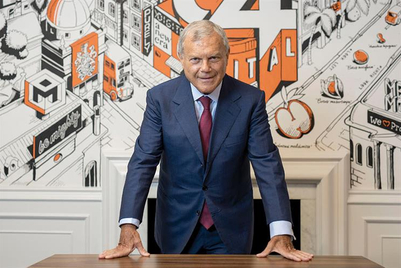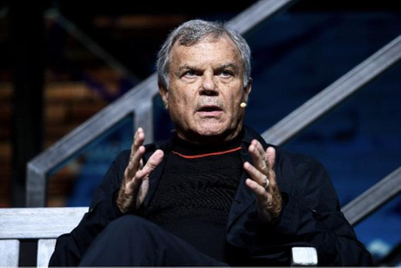
Here are some highlights of Sorrell's keynote speech picking out macro trends, in his own words.
Consolidation
I don't think we could have picked a better day to talk about the advertising industry. It's ironic in a way that I'm talking about the trend of consolidation on a day when we have seen significant de-consolidation.
But consolidation is here to stay. Take changes for example in the food and pharmaceutical industries. If i can be so bold, [the Publicis-Omnicom deal] was an iIll-considered attempt at consolidation in our industry, and it took 10 months to realise that it wasn't in the interests of clients, of people in the two companies, or frankly, for the industry.
What's interesting about the market mechanism is that it shakes out deals that do not have a strategic underpinning. The chicken comes home to roost in the end. Having said that, however, my bet is we will see further consolidation in our industry over the coming years, mirroring what we see happening to clients and media owners.
World shifts
The first thing we see going on is the dramatic shift in power in the world—economically, socially and politically—not only to the east in China, India, Indonesia, Pakistan, Bangladesh, but also to the south in Latin America, Brazil, Mexico, Argentina, Columbia, Peru. And also to the southeast in Nigeria (despite recent terrorism events).
I would agree with most Americans when they say America is still the traditional centre of the world, as it's still twice the size of China, although according to CNBC, that position will not be so—not on a per capita basis, where America will still lead.
We in the west still don't fundamentally understand this. The criticism of the slowdown in these fast-growth markets is nonsense. Our industry, and certainly the future of WPP depends on penetration of those markets in a more significant way.
China
China is pivotal to WPP's ambitions not just in the region of Asia-Pacific, but on a worldwide basis. We will cross $1.5 billion of revenue here in China, according to forecasts.
There is a myth in the west that China steals intellectual property. In my view, that is proven to be inaccurate with what we see today, particularly in the last few days, where the valuation of the Alibaba IPO may reach as much as $200 billion. We also see [the myth busted] with Xiaomi, a 3-year-old startup in mobile telephony with crowdsourced engineering and software. We see it with Baidu and Tencent. These are all companies that will increasingly become world leaders in terms of technology. There is a great error [in thinking] that we practise in the west, that we have a monopoly or dominance in the area of technology.
Talent
One of the vices in our industry is that, unlike the investment banking and consulting industries, we do not recruit from the best universities or schools, and we don't train, and we don't develop [people]. Together with the Shanghai municipality, we set up a WPP advertising school which will this year have 150 students. In return for naming rights to the school, we revise the curriculum, and our people teach it.
The Chinese government is very committed to building education and career paths for people in our industry. What I'd like to replicate is what we do in China on a worldwide basis.
Disintermediation
If you ask me what is the focal point of Jack Ma's attention it really is about disintermediation. It's about supplying goods and services to consumers at a lower price that changes the basis of the supply chain. Those of us who have traditional or legacy advertising or PR businesses are disintermediated, or threatened without being outcompeted, by new web-based companies. These companies are valuated by investors in totally different ways, not on margins or profitability or cashflow, but basically on sales penetration and market share.




.jpg&h=334&w=500&q=100&v=20250320&c=1)
.jpg&h=334&w=500&q=100&v=20250320&c=1)


+(1).jpg&h=334&w=500&q=100&v=20250320&c=1)

.jpg&h=334&w=500&q=100&v=20250320&c=1)




.png&h=268&w=401&q=100&v=20250320&c=1)



